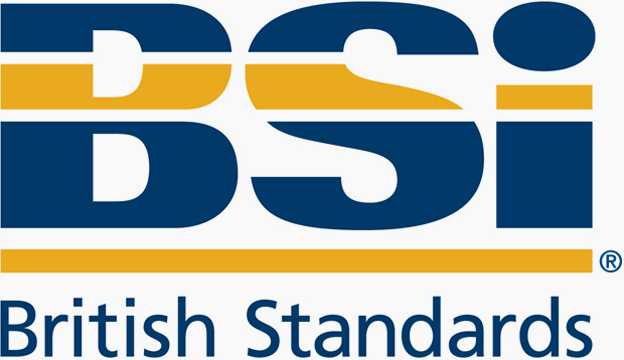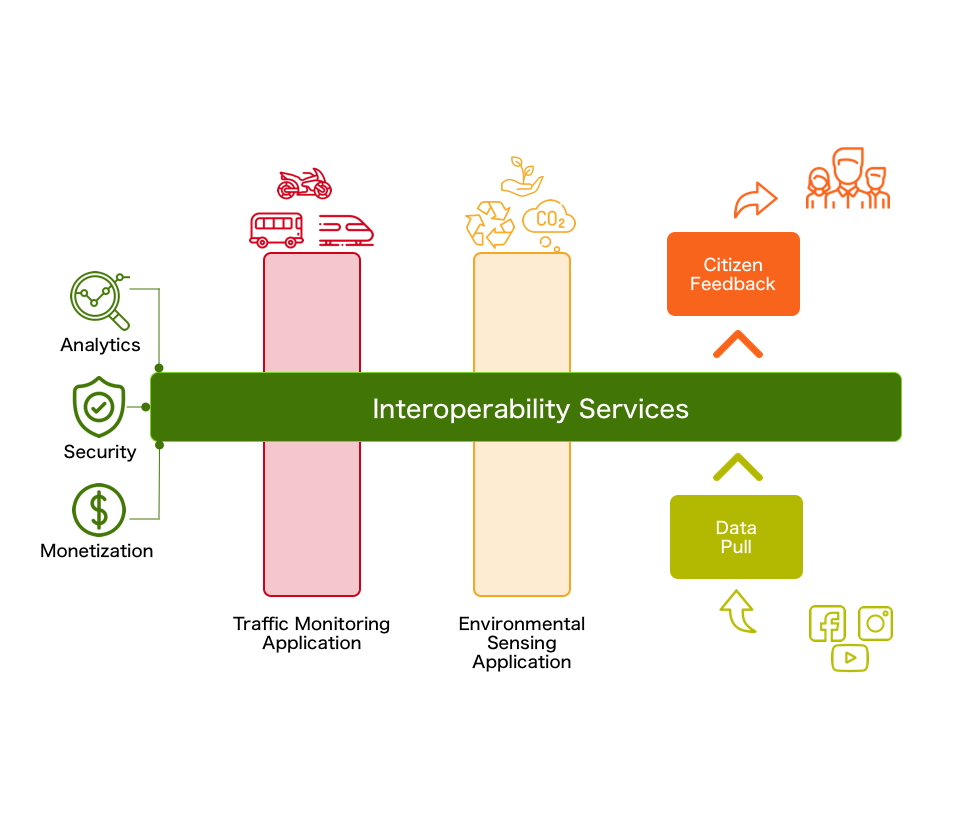Data Governance in the Era of Smart Cities
Presented by Dr. Lilia SFAXI
Why do Smart Cities need Data Governance?
“A Smart City is the effective integration of physical, digital and human systems in the built environment to deliver sustainable, prosperous and inclusive future for its citizens”
The British Standards Institute (BSI)


“A Smart City is one that makes optimal use of all the interconnected information available today to better understand and control its operations and optimize the use of limited resources”
IBM
“A smart city is an urban area that uses different types of electronic Internet of things (IoT) sensors to collect data and then use these data to manage assets and resources efficiently.”
Wikipedia


Horizontal Thinking
Objectives:- 1. Minimising the use of sectoral silos to define cross-organizational and technical services
- 2. Establishing a common approach across functional areas
- 3. Using standard communications and resource sharing

Big Data Management
Objectives:- 1. Leveraging several data sources
- 2. Bringing these data sources into a shareable environment with the implementation of a data exchange platform
- 3. Providing a data marketplace which extends the exchange concept through the addition of legal and monetization capabilities.
Notice that...
Not all data belongs to the city!
Define Governance Methods
-
Complete
To harness all types of urban data -
Organized
To improve the planning and efficiency of services -
Real-time
Keep you updated at every instant -
Secure
Keep what is private, private

“Urban data governance is the process of decision making on data related issues that impact questions of common good, business value and civil society.”
It is a value and policy driven matter.”
Smart Impacts

What can cities do to govern data in the best interest of their citizen?
Know Your DATA!

Data Governance Activities
- 1. Capture and understand the data
- 2. Improve the quality of the data
- 3. Manage and Transform the data
- 4. Control and monitor the data
- 5. Document the data
- 6. Empower those who know the data

Data Governance Activities
- 1. Capture and understand the data
- 2. Improve the quality of the data : Data Quality
- 3. Manage and Transform the data
- 4. Control and monitor the data
- 5. Document the data
- 6. Empower those who know the data : Data Stewardship
Data Quality
One of the Most Important Pillars of Data Governance
How to make sure that you are dealing with quality data, while having a data management process that is at the same time thorough, fast and cheap?
(Some) Quality Metrics
Accuracy
Is your data sufficiently accurate for the intended use?
Validity
At which extent is the data adequate for its intended usage?
Accessibility
Is the data accessible and easily retrievable all through the lifecycle of the system?
Consistency
If the data exists in multiple locations in your system, are all their values the same?
Uniqueness
How unique is this data set? How many records exist only in this data set?
Reliability
Does the data reflect stable and consistent data collection processes across collection points and over time?
Newness
How old is the data?
Attributability
Is the data attributable, that is, linked to the individual who created or recorded it?
Data Stewardship
Because data needs protectors!
Who are the different actors that are involved in the creation, update, deletion, monitoring, transformation and tractability of the data in its environment?
Data Team Workforce
-

Data Governance Council
Responsible of the strategic view of the data governance plan
-

Data Governance Board
Responsible of the tactical view of the data governance plan
-

Data Steward
Responsible of defining the rules and planning the access and delivery of data
-

Data Owner(s)
Responsible of defining the requirements and ensuring the data quality and accessibility
-

Data Manager(s)
Responsible of the management of the infrastructure
-

Data User(s)
Those who have access to reliable data
Are there best practices for data governance in smart cities?
A Smart Society Charter Smart Impact
-
Privacy First
Control over one's own data. -
Open data and Interfaces
Enabling access to datasystems. -
Open Standards
For better evolution and control. -
Share where possible
To stimulate interoperability. -
Support modularity
To ensure flexible growth. -
Accept social responsibility
For both citizen and society.

